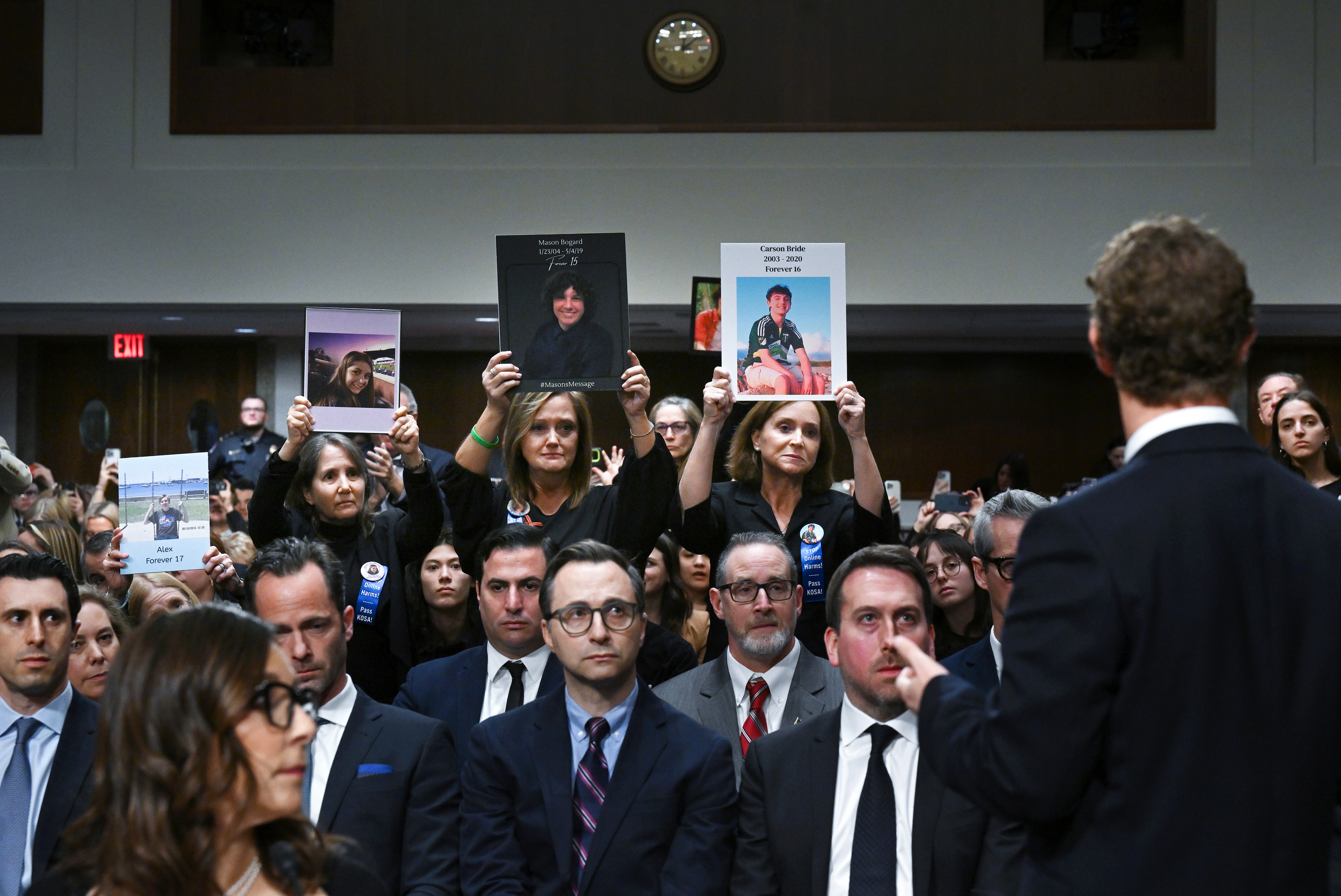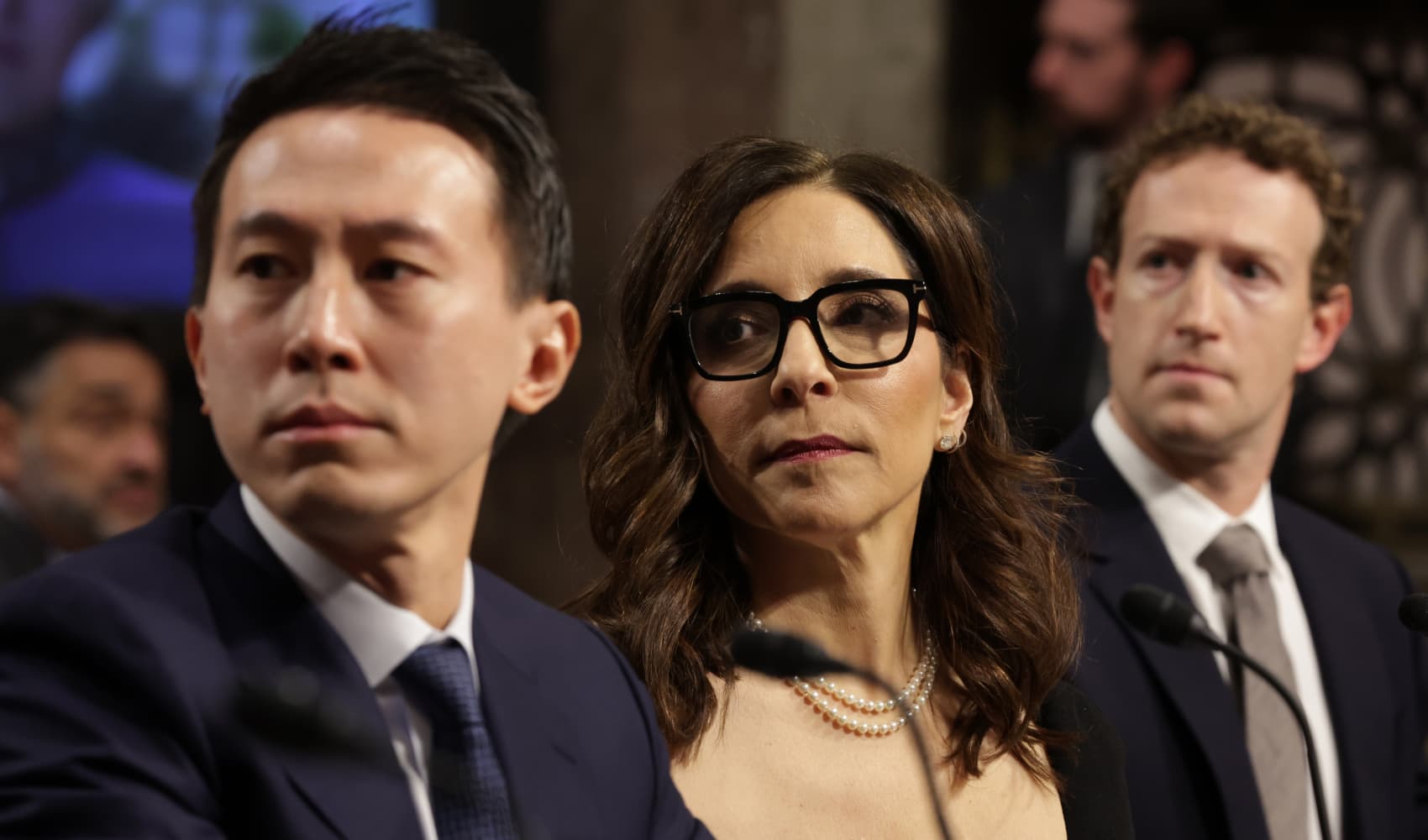Sharing reels or liking posts offer the feeling of being connected, but what about the potential dark side to social media?
As controversy surrounds tech giants and what experts say can be addictive features, children are left facing a number of problems.
Alexis Spence, 21, and her mother, Kathleen, from Long Island, attended a Jan. 31 Senate hearing about child exploitation on social platforms. At age 11, Alexis developed what she describes "social media addiction," which later led to a life-threatening eating disorder.
"I could not stop. I'd be doom scrolling on it, and it was showing me graphic and traumatizing content. It was showing me malnourished children, dying children," the 21-year-old said.
Get Tri-state area news and weather forecasts to your inbox. Sign up for NBC New York newsletters.
"These were all hashtags that were being fed to her through Meta's algorithm. On May 8, 2018, she had a whole plan of taking her life. By the grace of God, her friends had reported it on one of her accounts, they were able to stop her," Kathleen Spence said.
Research shows that adolescents who spend over three hours a day on social media may be at a heightened risk for mental health issues, that's according to JAMA Psychiatry.
In New York City, recent data published by the Department of Health found that 77% of high school students are spending three or more hours daily on screens.
Dr. Isaac Vaghefi, an assistant professor at Baruch College, has surveyed hundreds of young people and adults on social media.
"On average, now we are touching our phone 200 times a day, which is plenty. They say, on average, they use it for two hours a day and up to even eight hours a day. So basically, they get on and they are on social media almost constantly," Dr. Vaghefi said.
Klea is one of Dr. Vaghefi's previous students who participated in the study and decided to change some of her habits.
"After this study, I just decided to come up with other ways to occupy my time. As simple as going to the park or a simple coffee after work. Honestly, the small things, those are, I believe, the best ones," she said.
A Manhattan psychiatrist who specializes in addiction therapy, Dr. Samuel Glazer of Fifth Ave Psychiatry, said our basic human need for connection isn't found through influencers or gaining thousands of followers.
"I think people need real friends to feel connected, share experiences together. I think through social media, being connected in that way tricks us, and often to feel connected with someone, it needs to be repetitive," Dr. Glazer said.
Experts say more studies need to be done to compare increased social media use to traditional substance or compulsive use disorders. One study shows that obsessive social media use does not effect the brain in the same way as a drug would.
"It's actually good news, because when the brain regions that govern self-control are damaged, for example in the case of substances, we have toxins that actually effect these brains regions -- it's very difficult to fix these brain regions. If the brain regions are in tact, and it's just an issue of awareness, this is something that's relatively easy to resolve. We just need to teach people to self-regulate and take control over social media use," Dr. Ofir Turel said.
New York City made history in January, becoming the first-ever U.S. city to declare social media a "public health crisis," with plans to implement policy to control children's access on social platforms.
The largest platforms collectively brought in $11 billion in advertising revenue in the U.S., just on users younger than 18 years of age, according to a Harvard study.
New York State Sen. Andrew Gounardes introduced two bills targeting the tech industry's hold over children.
"The first is called the Stop Addictive Feeds Exploitation for Kids Act. This would regulate social media companies and say that they cannot use addictive algorithms on social media feeds on minors under the age of 18 as a default option. The second bill is called the New York Child Date Privacy Protection Act, and it basically says that internet companies cannot collect data from minors under the age of 18 and then use it for commercial purpose to sell it for ad revenue without consent," Sen. Gounardes said.
Potential signs to watch are relying on your phone to relieve stress or cravings, lack of sleep and noticing changes in your relationships. If you're not sure about your time spent on the apps, take our interactive test below.



